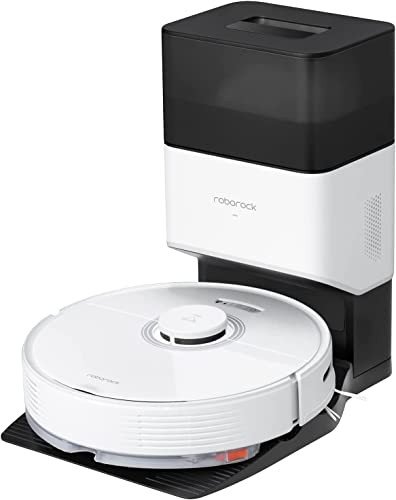The 10 Most Scariest Things About Autonomous Vacuum
The Rise of Autonomous Vacuums: Revolutionizing Home Cleaning
In the age of technology, home chores are ending up being progressively automated, and among the most noteworthy advancements in this realm is the autonomous vacuum. These intelligent cleaning robotics are developed to minimize the drudgery of traditional vacuuming, making them popular among time-strapped households. This short article explores the development, performance, advantages, and limitations of autonomous vacuums, in addition to a comparison of a few of the leading designs on the marketplace today.
What is an Autonomous Vacuum?
An autonomous vacuum, likewise called a robotic vacuum cleaner, is a little, automatic device that navigates through your home to tidy floorings without human intervention. Geared up with sensing robot hoover UK , electronic cameras, and advanced software application, these vacuums can detect obstacles, prevent stairs, and enhance cleaning paths. They generally run from a rechargeable battery, returning to their charging stations when their power is low or when cleaning jobs are finished.
Key Features of Autonomous Vacuums
Smart Navigation:
- Utilizes sensing units and algorithms to map the environment.
- Can browse intricate designs and avoid barriers.
Scheduling:
- Allows users to set cleaning times.
- Can operate when your house is empty, guaranteeing very little disturbance.
Connectivity:
- Many designs connect to Wi-Fi, enabling app control and integration with smart home systems.
- Users can tailor settings, check cleaning status, and receive notifications through mobile applications.
Suction Power:
- Varies between models; some offer adjustable suction settings for various floor types.
- High-end models include powerful suction efficient in getting animal hair and deep dirt.
Floor Type Adaptability:
- Capable of cleaning carpets, wood, tiles, and more.
- Particular models specialize in customized cleaning for numerous surface areas.
The Advantages of Using Autonomous Vacuums
1. Time-Saving
Among the most substantial advantages of autonomous vacuums is the quantity of time they save. Rather than spending hours pushing a traditional vacuum, house owners can set robotic vacuums to tidy while they are participated in other activities.
2. Consistent Cleaning Schedule
With the ability to set up cleansings, these vacuums ensure that areas are regularly cleaned up, causing a cleaner home in general. Routine cleaning assists preserve indoor air quality, especially for families with allergies or asthma.
3. Smart Home Integration
Many autonomous vacuums can be incorporated with wise home systems for smooth operation. Property owners can control their vacuums through voice commands through devices like Amazon Alexa or Google Assistant, improving user benefit.
4. Compact Design
The slim profile of these devices enables them to clean under furniture, such as couches and beds, where standard vacuums frequently can not reach.
5. Pet-Friendly
For animal owners, autonomous vacuums can be a game-changer, as they are typically geared up with specialized functions for getting animal hair and dander, contributing to a cleaner home environment.
Limitations of Autonomous Vacuums
Despite their lots of benefits, autonomous vacuums likewise have limitations:
1. Restricted Deep Cleaning
While these vacuums effectively maintain tidiness, they might not change the effectiveness of a deep tidy offered by standard vacuums, especially for heavily stained locations.
2. Capacity Constraints
A lot of autonomous vacuums included small dust bins that require to be cleared often, specifically in bigger homes or homes with animals. This can be an inconvenience for some users.
3. Navigation Challenges
Although navigation innovation is constantly enhancing, some models might struggle with particular layouts, particularly intricate areas with many challenges or really small rooms.
4. Rate Point
While prices have become more accessible, high-end models can still be rather costly, presenting a barrier for some consumers.
Contrast of Top Autonomous Vacuum Models
Model
Smart Features
Battery Life
Suction Strength
Price Range
iRobot Roomba 980
App Control, Voice Assistant
120 minutes
1700 Pa
₤ 700 – ₤ 900
Roborock S6 MaxV
Advanced Mapping, Connectable
180 minutes
2500 Pa
₤ 600 – ₤ 800
Ecovacs Deebot Ozmo
Mopping, Smart Home
110 minutes
1500 Pa
₤ 450 – ₤ 700
Neato Botvac D7
Laser Navigation, Custom Zones
120 minutes
2000 Pa
₤ 800 – ₤ 900
Shark IQ Robot
Self-Emptying Base, Smart Map
90 minutes
1500 Pa
₤ 400 – ₤ 600
Significant Takeaways
- Smart Features: Consumers need to prioritize designs providing robust clever functions for benefit and performance.
- Battery Life: A longer battery life is beneficial for bigger home.
- Suction Strength: Depending on household requirements, varying suction power can significantly affect cleaning performance.
Frequently Asked Questions about Autonomous Vacuums
Q1: How do I maintain my autonomous vacuum?
A: Regular upkeep includes cleaning the brushes, emptying the dustbin, and inspecting for clogs. Additionally, keeping the sensors clean will help keep navigation accuracy.
Q2: Can robotic vacuums clean rugs and carpets?
A: Yes, many robotic vacuums are created to effectively clean both difficult surface areas and carpets. However, suction power may vary based upon the model.
Q3: Do robotic vacuums require Wi-Fi?
A: While many autonomous vacuums gain from Wi-Fi connection for app control and updates, some designs can run individually without a cordless connection.
Q4: How frequently should I run my robotic vacuum?
A: It depends on your living circumstance, but running it a number of times a week is frequently suggested, specifically for homes with family pets.
In conclusion, autonomous vacuums represent a substantial development in home cleaning technology, promising convenience and effectiveness. While these devices may not completely change traditional vacuum cleaners, they are certainly practical in preserving a tidy living environment. As technology continues to develop, the future of home cleaning looks appealing, and these gadgets are at the forefront of the revolution.
